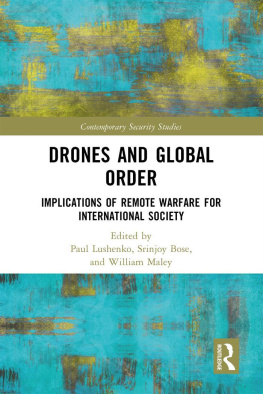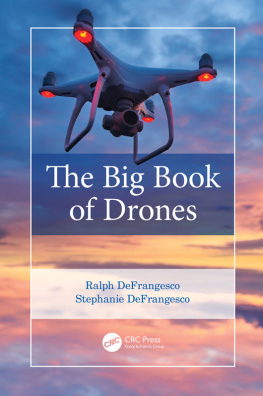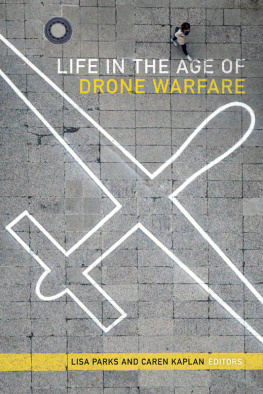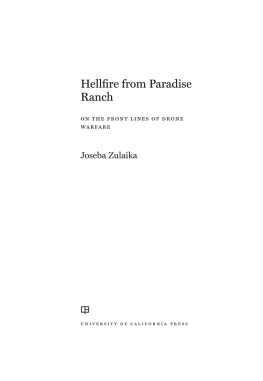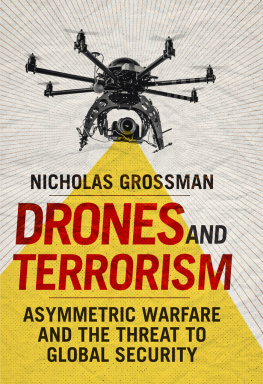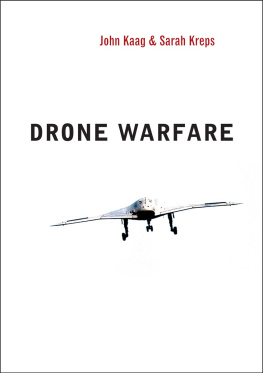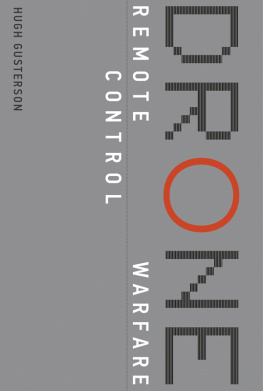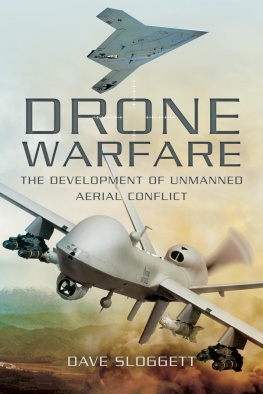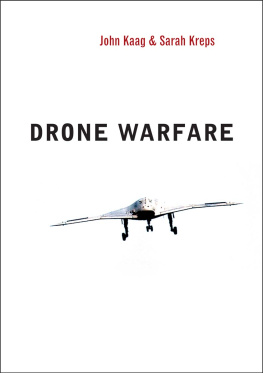Autonomous and remote weapons are the future of warfare, yet until now there has been surprisingly little reflection on their implications for world order. Utilizing international theory and keen insight into contemporary world politics, this impressive volume sheds new light on the system-wide effects of drones on the laws, norms, and practice of warfare, and sets an agenda that others will be obliged to follow.
Alex J. Bellamy,The University of Queensland, Australia
This superb collection of essays significantly advances our understanding of the consequences of drone warfare for global order.
Stefan Borg,Swedish Defense University, Stockholm
This book is timely, insightful, and provocativeexactly what is needed to advance the drone warfare debate. The co-editors bridge the gap between academia and the military by including chapters from the worlds leading experts and practitioners of remote warfare. The authors insights will help inform decisions of combat leaders across alltactical, operational, and strategiclevels of war. Students at the War Colleges must read this book to adequately prepare for an era of robotics-enabled warfare.
Barry McCaffrey,General Retired, U.S. Army
This important book adds significantly to our understanding of drone warfare in the contemporary era by marrying the contributors substantial empirical knowledge with insights drawn from the so-called English School approach to International Relations Theory. This results in a better appreciation of how drone warfare shapes, and is shaped by, the global social order, which English School scholars label international society. Some may consider this hyperbole. However, I also see signs of a change in the evolving phenomenon of drone warfare of perhaps similar magnitude to that of the nuclear revolution at the end of WWII, especially when paired with the related developments in artificial intelligence and cyber warfare. The cumulative effect of these developments may be profound and unsettling for international society, and this book offers a useful platform for thinking through these issues in a more systematic way.
Laust Schouenborg,University College London, UK
Drones and Global Order
This book explores the implications of drone warfare for the legitimacy of global order.
The literature on drone warfare has evolved from studying the proliferation of drones, to measuring their effectiveness, to exploring their legal, moral, and ethical impacts. These three waves of scholarship do not, however, address the implications of drone warfare for global order. This book fills the gap by contributing to a fourth wave of literature concerned with the trade-offs imposed by drone warfare for global order. The book draws on the English School of International Relations Theory, which is premised on the existence of a society of states bounded by common norms, values, and institutions, to argue that drone warfare imposes contradictions on the structural and normative pillars of global order. These consist of the structure of international society and diffusion of military capabilities, as well as the sovereign equality of states and laws of armed conflict. The book presents a typology of contradictions imposed by drone warfare within and across these axes that threaten the legitimacy of global order. This framework also suggests a confounding consequence of drone warfare that scholars have not hitherto explored rigorously: drone warfare can sometimes strengthen global order. The volume concludes by proposing a research agenda to reconcile the complex and often counter-intuitive impacts of drone warfare for global order.
This book will be of considerable interest to students of security studies, global governance, and International Relations.
Paul Lushenko is a U.S. Army Lieutenant Colonel and General Andrew Jackson Goodpaster Scholar at Cornell University, U.S.A.
Srinjoy Bose is a Senior Lecturer in Politics and International Relations at the University of New South Wales, Australia.
William Maley is an Emeritus Professor at The Australian National University.
Contemporary Security Studies
Series Editors: James Gow and Rachel Kerr, Kings College London
This series focuses on new research across the spectrum of international peace and security, in an era where each year throws up multiple examples of conflicts that present new security challenges in the world around them.
NATO and Transatlantic Relations in the 21st Century
Foreign and Security Policy Perspectives
Edited by Michele Testoni
Reconciliation After War
Historical Perspectives on Transitional Justice
Edited by Rachel Kerr, Henry Redwood and James Gow
Militia Order in Afghanistan
Guardians or Gangsters?
Matthew P. Dearing
Prosecutorial Discretion in the International Criminal Court
Legitimacy and the Politics of Justice
Farid Mohammed Rashid
Drones and Global Order
Implications of Remote Warfare for International Society
Edited by Paul Lushenko, Srinjoy Bose, and William Maley
Understanding Russian Strategic Behavior Imperial Strategic Culture and Putins Operational Code
Graeme P. Herd
For more information about this series, please visit: https://www.routledge.com/Contemporary-Security-Studies/book-series/CSS
Drones and Global Order Implications of Remote Warfare for International Society
Edited by Paul Lushenko, Srinjoy Bose, and William Maley

First published 2022
by Routledge
2 Park Square, Milton Park, Abingdon, Oxon OX14 4RN
and by Routledge
605 Third Avenue, New York, NY 10158
Routledge is an imprint of the Taylor & Francis Group, an informa business
2022 selection and editorial matter, Paul Lushenko, Srinjoy Bose, and William Maley; individual chapters, the contributors
The right of Paul Lushenko, Srinjoy Bose, and William Maley to be identified as the authors of the editorial material, and of the authors for their individual chapters, has been asserted in accordance with sections 77 and 78 of the Copyright, Designs and Patents Act 1988.
All rights reserved. No part of this book may be reprinted or reproduced or utilised in any form or by any electronic, mechanical, or other means, now known or hereafter invented, including photocopying and recording, or in any information storage or retrieval system, without permission in writing from the publishers.
Trademark notice: Product or corporate names may be trademarks or registered trademarks, and are used only for identification and explanation without intent to infringe.
British Library Cataloguing-in-Publication Data
A catalogue record for this book is available from the British Library
Library of Congress Cataloging-in-Publication Data
A catalog record has been requested for this book
ISBN: 978-0-367-68922-3 (hbk)
ISBN: 978-0-367-68926-1 (pbk)
ISBN: 978-1-003-13967-6 (ebk)
DOI: 10.4324/9781003139676
Typeset in Times New Roman
by MPS Limited, Dehradun
Contents
- Conceptualizing global order in an era of remote warfare PAUL LUSHENKO, SRINJOY BOSE, AND WILLIAM MALEY
- PART I Why do states use drone warfare?
- Realism, drone warfare, and the future of the international system JOHN HARDY

